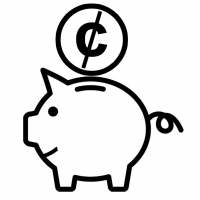On past podcasts, I have talked about slow, steady ways of improving your credit score like paying down bills and paying them on time. And I’ve talked about fast, flashy ways of improving your credit score, like becoming an authorized user on somebody else’s healthy account or asking creditors to delete single sins that are dragging your score down.
Now I want to talk about why you should go to the trouble to take those steps to raise your credit score if it’s not tip top. By tip top I mean 720 or above on a scale of 300 to 850. 720 is the base threshold for obtaining the very good interest rates on loans, whether for credit cards, car notes, mortgages or other loans. 740 or 760 get you even better deals. But let’s use 720 as our goal here.
Suppose you started out with a credit score of 620, which is about the lowest score you can have and still get a private mortgage with no government assistance. I did some research and a typical interest rate for somebody with a score of 620 might be about 6 and a half percent. BUT if you raise that score up to 720, you would qualify for a mortgage rate of just over 5%. About a point and a half less.
Now let me do a math comparison for you on a $300-thousand dollar mortgage. With the roughly 6 and a half percent interest rate you’d get with your 620 credit score, interest on your mortgage will cost you about $23,000 a year. If you raise your score to 720 and lower your interest rate to 5%, then your loan will cost about $20,000 a year in interest. So just by staking steps to raise your score, you will save $3,000 a year and nearly a hundred thousand dollars if you kept the mortgage for 30 years.
I did some math for an auto loan too, and I won’t go into all of the exact interest rates and prices here, but a score of 720 instead of 620 could save you nearly $3,000 over the course of a 3-year auto loan.
Here’s my favorite part about raising and then maintaining a high credit score: it’s free. All you have to do is use your current credit responsibly and you will save thousands of dollars on your future credit.

